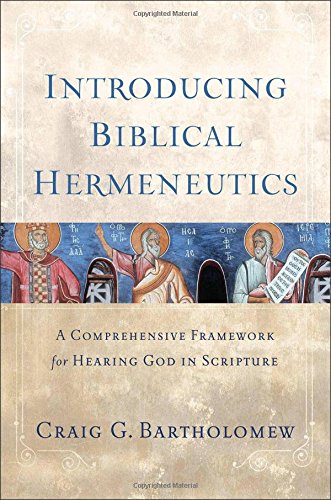In a year filled with physical and mental health issues, I found reading more difficult, so I chose books that would soothe the soul. I returned to familiar friends that had once walked with me and gave me hope so that 2022 could be traversed in gentle company.
A Wizard of Earth Sea by Ursula Le Guin
The last time I read this classic was twenty years ago, and I never returned to Earth Sea because of the deep emotions associated with the book. Ged, the protagonist, goes through my human experience of realising brokenness, confronting the consequences of our actions and ultimately having to face my worst enemy—myself.
Even with the benefit of hindsight, I stopped at the page before the major complication occurred (seventy pages into a two hundred paged book!) and did not start again for a month. I didn’t want Ged’s life to change, not influenced by regrets. But when I was brave enough to pick up the book again, I grew to learn once more that though the benefit of hindsight does not make the journey any less scary, perhaps with courage and friendship, it may be lighter.
Still time to Care by Greg Johnson
Billy Graham said on national radio, “The ground at the foot of the cross is level [for all]…”.[1] Unfortunately in the last forty years there has been a pattern of Christian communication that for LGBTQ+ people, you must be better first. Greg Johnson’s book seeks to chip away the cultural baggage that have encrusted the gospel of grace, where entry into the kingdom is by grace alone, in Christ alone, through faith alone, through Scripture alone, for the glory of God alone. He applies this gospel to Christians’ posture towards LGBT people and, as both a pastor and historical theologian, searches how we can better dialogue and minister with real people within our care by learning from the mistakes of the past. Though it is written from a North American perspective, this is a must read for Christians everywhere.
Unfortunately in the last forty years there has been a pattern of Christian communication that for LGBTQ+ people, you must be better first.
Dawn of Sunday: The Trinity and Trauma-Safe Churches by Preston Hill, Joshua Cockayne, Scott Harrower
“Trauma” might be seen as the new buzzword in the last couple of years, particularly with greater studies into the effect of trauma and interdisciplinary practice; but trauma awareness makes Christian growth, discipleship, and pastoral care all the more richer.
Following on from his first book, God of All Comforts, Scott Harrower collaborates with two other experts and brings a book that is: rich in pastoral understanding of trauma’s impact: a theological perspective of God in the midst of trauma; and full of ecclesiology and practical ways a church can be a safe space for everyone and their experience of hurt and health.
Blue Horses by Mary Oliver
Poetry is balm for the soul, and Mary Oliver’s poems feel like cool trickling water on a warm summer’s day. I found myself returning to one of my favourites this year. Mary Oliver’s prose is rich with simplicity drawing from years of grounding into the realities of human lives. One of my favourites in this collection, “Angels,” contains the line:
“I don’t care how many angels can
dance on the head of a pin. It’s
enough to know that for some people
they exist, and that they dance.” (15)
In Oliver’s poetry, she is not resigned but content. Her poems pull us to look beyond the overcomplicated world that we have created and enter into the slow movements of everyday living. For me, it calls out alongside Jesus’ voice to “learn the unhurried rhythms of grace” (Matt 11:30 MSG).
My body is not a prayer request by Amy Kenny
Throughout her life, Amy has had experiences of well-meaning Christians seeking to pray for her healing, and at other times, intrusively praying without consent. Living with a disability, Amy asserts, does not make someone unsanctified, unredeemed, or less than able-bodied and neurotypical people. A defective theology of God, human flourishing, brokenness and redemption lead to defective practices of prayer and care.
The other thing that Kenny points out with much clarity is the many facets of prayer. Prayer is not just “talking to God.” Power is at work in prayer, through God, but also by the person who prays and the person who is prayed for. With any use of power, we need to take care in how we pray for others—and for too long in the space of disabilities and sicknesses, we have either underplayed this power or misused it through incorrect theology.
True Friends by Patti Miller
“A true friend is a sweet thing—sometimes it lasts for a lifetime, but sometimes it’s over and you don’t know why.” (277)
A true friend is a sweet thing—sometimes it lasts for a lifetime, but sometimes it’s over and you don’t know why.
I find we often don’t communicate the deep things of friendship, and in the midst of unmet expectations, unspoken hurts or distance, friendships drift apart. In my experience, unless friends work hard the relationship can peter out like a slow drip-feed. True Friends is a navigation of the troughs and peaks of friendships and one person’s attempt at trying to form a reason for what happened.
Miller puts into words the experiences I have not been able to vocalise, and made me look deeper at my own commitments. Sitting on the table before me is a present from a dear friend, a knife with the engraving: “A friend loves at all times, and a brother is born for adversity.” (Prov 17:17) I hope that I’ve learnt to love better this year.

Introducing Biblical Hermeneutics
Craig Bartholomew
Integrating the latest research in theology, philosophy, and biblical studies, this textbook is theological in its approach, takes philosophical hermeneutics seriously, keeps the focus throughout on interpreting Scripture, and argues that all biblical hermeneutics should serve the church.
Religious Freedom in a Secular Age by Michael F. Bird
Public theology is an area that we as evangelicals have had difficulty engaging with nuance; much of the time we have relegated the task of doing public theology to the twin thieves of pragmatism or nationalism. Stuart Coutlon, former principal of SMBC, exhorted students that throughout Christian history mistakes were made when Christians assumed cultural values were biblical values. Bird’s book is a sharp reminder in our age—where the fruit of the spirit are dispensed for rhetoric that bears no difference to wider culture—that we are in need of charitable and truth speaking voices; a public presence, in the words of Bird, with the charisma of Jimmy Kimmel and a posture like Fred Rogers.
Introducing Biblical Hermeneutics by Craig Bartholomew
We use hermeneutics all the time—we interpret things around us. We never come to anything without preconceived ideas formed by prior experiences. Because the acts of interpretation often occur under the surface, we may not bring them under scrutiny (particularly under the scrutiny of scripture). In many important conversations, too much noise is spent on declaring how our view is “the plain reading of scripture…” and theirs is not, without discerning the paths of interpretation that both sides may have. Conversant dialogue then becomes talking over one another. Returning back to a consideration of hermeneutics is then a returning to the practice of listening well, being aware of our own listening, and being able to dialogue with text and people with grace and truth.
Bartholomew’s work is a classic that engages the act of hermeneutics for Scripture, and allowed me to look at the many times I have mistakenly aligned myself uncritically with a way of reading God’s word that has made gazing through the glass in far dimmer and distorted ways for myself and others. For preachers, the final chapter on “Preaching the Bible for All It’s Worth: The Resurrection of the Sermon and the Incarnation of the Christ” and its critique of propositional preaching deserves a thorough read and contemplation of ministry practice.
The relentless tenderness of Jesus by Brennan Manning
There are many things I don’t agree with Brennan Manning, but when a dear friend recommended The Relentless Tenderness of Jesus during a time of need, it was a feast for the hungry soul. The softness of Manning’s words, urging the reader to engage with the Jesus of the Bible, gently guided me to the lover of my soul again and again. There were times where Manning’s ideas rubbed against my evangelical beliefs (and no doubt would rub against many of yours) but by so doing they honed my convictions—and I am thankful for that. We often avoid writers we disagree with, or spend our time picking out their incorrectness. Speaking outside my faith tradition, Manning pried open blind spots of my spiritual practice and opened up ways of engaging with God that are rich and grounded.[2] I am better for it.
[1] https://www.christianitytoday.com/ct/2018/billy-graham/level-ground-at-cross.html
[2] For another example, see Peter Adam’s “rash generalisation” about liberals and evangelicals in this post.















